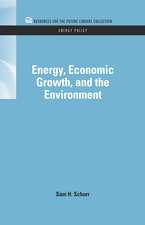Mexico: The Remaking of an Economy
Autor Nora Claudia Lustigen Limba Engleză Paperback – aug 1998
Today Mexico is viewed as a success story in the management of economic adjustment and structural reform. Inflation is under control, capital and foreign investment are returning, and out growth has increased. Mexico's recovery, however, has been neither smooth nor rapid. In mid-1982, Mexico was in deep economic crisis compounded by an unfavorable international environment. Mexico was saddled with a large foreign debt, world interest rates were high, commercial banks had stopped lending, and the price for oil was dropping. Conditions at home were no better with rampant inflation, increasing capital flight, and chaos in financial and foreign exchange markets. To confront internal imbalances and accommodate adverse external conditions, Mexico adjusted its consumption and output, then sought new ways to foster growth. The crisis and adjustment imposed great hardship and demanded enormous discipline on the part of the government. This was accomplished without serious political or social disruption. In this book, Nora Lustig analyzes Mexico's economic evolution from the outset of the debt crisis in 1982 until the sweeping reforms began to bear fruit in the early 1990s. She explains the causes of the 1982 economic crisis and why it took Mexico "so long" to restore stability and growth. She also explores the question of the social costs of economic crisis and adjustment, and why the process may have been easier for Mexico than other debt-ridden countries. A discussion of the emerging role of the state in Mexico and the country's new outward-oriented development strategy is followed by an analysis of its search for greater economic integration with the United States and Canada. Selected by Choice as an Outstanding Book of 1992
Preț: 201.79 lei
Nou
Puncte Express: 303
Preț estimativ în valută:
38.62€ • 39.55$ • 32.12£
38.62€ • 39.55$ • 32.12£
Carte tipărită la comandă
Livrare economică 19 martie-02 aprilie
Preluare comenzi: 021 569.72.76
Specificații
ISBN-13: 9780815753193
ISBN-10: 0815753195
Pagini: 287
Ilustrații: Illustrations
Dimensiuni: 152 x 229 x 22 mm
Greutate: 0.41 kg
Ediția:Second Edition
Editura: Brookings Institution Press
Colecția Brookings Institution Press
Locul publicării:United States
ISBN-10: 0815753195
Pagini: 287
Ilustrații: Illustrations
Dimensiuni: 152 x 229 x 22 mm
Greutate: 0.41 kg
Ediția:Second Edition
Editura: Brookings Institution Press
Colecția Brookings Institution Press
Locul publicării:United States
Notă biografică
Nora Lustig is a senior fellow in Brookings' Foreign Policy Studies program and the editor of Coping with Austerity: Poverty and Inequality in Latin America (Brookings, 1995).
Descriere
Today Mexico is viewed as a success story in the management of economic adjustment and structural reform. Inflation is under control, capital and foreign investment are returning, and out growth has increased. Mexico's recovery, however, has been neither smooth nor rapid. In mid-1982, Mexico was in deep economic crisis compounded by an unfavorable international environment. Mexico was saddled with a large foreign debt, world interest rates were high, commercial banks had stopped lending, and the price for oil was dropping. Conditions at home were no better with rampant inflation, increasing capital flight, and chaos in financial and foreign exchange markets. To confront internal imbalances and accommodate adverse external conditions, Mexico adjusted its consumption and output, then sought new ways to foster growth. The crisis and adjustment imposed great hardship and demanded enormous discipline on the part of the government. This was accomplished without serious political or social disruption. In this book, Nora Lustig analyzes Mexico's economic evolution from the outset of the debt crisis in 1982 until the sweeping reforms began to bear fruit in the early 1990s. She explains the causes of the 1982 economic crisis and why it took Mexico "so long" to restore stability and growth. She also explores the question of the social costs of economic crisis and adjustment, and why the process may have been easier for Mexico than other debt-ridden countries. A discussion of the emerging role of the state in Mexico and the country's new outward-oriented development strategy is followed by an analysis of its search for greater economic integration with the United States and Canada. Selected by Choice as an Outstanding Book of 1992










